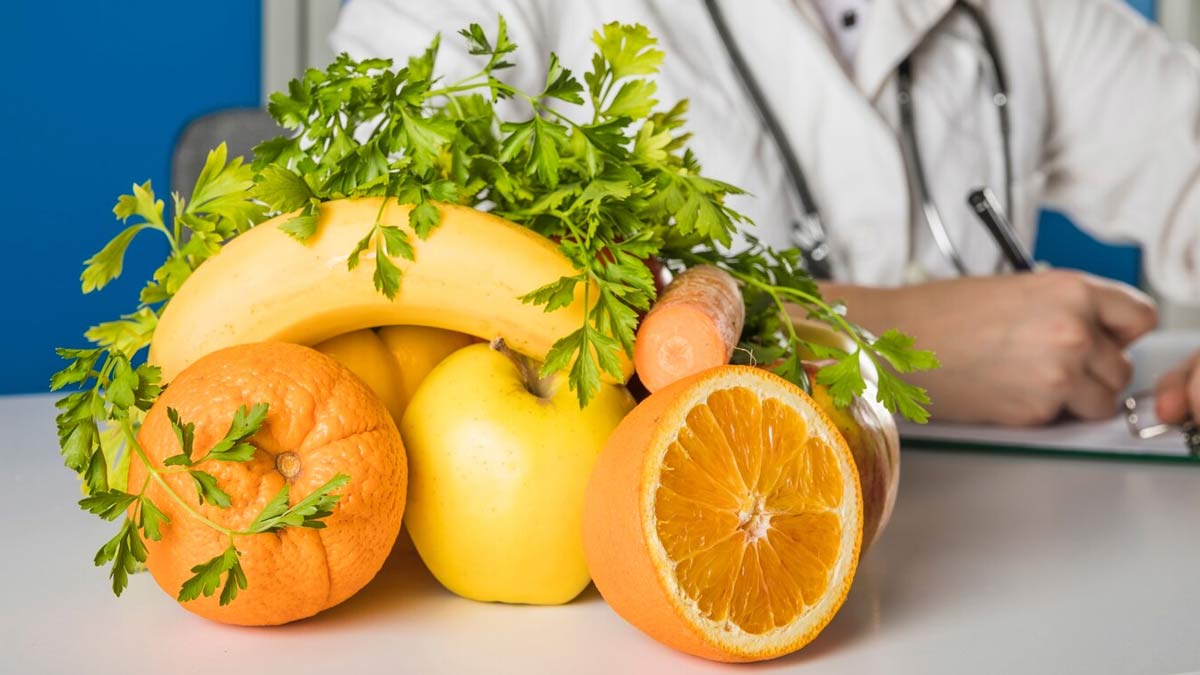
When it comes to health, nutrients have a significant impact on it. In general, they play a crucial role in supporting overall wellbeing. For instance, proteins are essential for building and repairing tissues, while vitamins and minerals aid immune functions and other bodily functions. A balanced intake of these nutrients is also vital for preventing deficiencies, which can lead to various health complications in both men and women.
Speaking with the OnlyMyHealth team, Sweedal Trinidade, Chief Dietary Services, PD Hinduja Hospital and Medical Research Centre, Mahim, talked about the standard nutritional requirements and mentioned the common deficiencies.
Also Read: Essential Nutrients For Men And Its Benefits On Health
Nutritional Requirements

“Different foods that we eat contain macronutrients like carbohydrates, proteins, fats and micronutrients like vitamins and minerals,” said Trinidade, adding that it is important to consume macronutrients in the proper ratios. These include:
- 10-20% of their calories from protein
- 55-70% from carbohydrates
- 10-30% from fats
According to the nutritionist, nutritional needs vary within genders depending on the following factors:
- Genetic makeup and heredity
- Body composition at various stages of life
- Hormonal changes
- Chronic/ acute disease
- Medications and nutraceuticals
- Activity level
Nutritional Deficiency Prevalence In Men And Women
When it comes to women, their health is not just defined by the number on the weighing scale but also by the absence of nutritional deficiencies and disease. Trinidade said, “Food habits are highly influenced by culture, ethnicity and geographic location. Furthermore, economic status also influences the accessibility of different foods.”
According to the World Health Organization (WHO), more than 200 crore people in the world today are said to be deficient in key vitamins and minerals, particularly vitamin A, iodine, iron and zinc.
Worldwide, the number of overall nutritional deficiency cases was more than 2.4 crore among women of reproductive age in 2019, with a 25.18% increase in absolute number from 2010 to 2019, according to a study published in the Journal Nutrients.
Global anaemia prevalence in 2019 was 29.9% in women of reproductive age, equivalent to over 50 crore women aged 15-49 years, according to the WHO.
Here is a list of common nutrient deficiencies experienced by both men and women:
Iron Deficiency

According to WHO, iron deficiency anaemia tops the list of nutrient deficiency associated health problems in young girls and pregnant women. During pregnancy, the condition increases the risk for maternal death, pregnancy, and low birth weight in infants. The global health organisation recommends iron and folic acid supplementation for improving serum iron status in women of reproductive age.
Dietary sources: Red meat, organ meat, shellfish, which are good sources of heme iron. Non heme sources include kidney beans, pumpkin, sesame, squash seeds, garden cress seeds, sunflower seeds, black dates.
Vitamin A Deficiency
Vitamin A is a fat soluble vitamin responsible for immune function and healthy eyesight. Trinidade said, “Deficiency of vitamin A can result in blindness, suppression of immunity that can make the deficient population prone to infections, which is why vitamin A supplementation is highly effective in preventing the deficiency and reducing mortality in women and children.”
However, she warned against consuming excess vitamin A intake as it can lead to vitamin A toxicity.
Dietary sources: Bright-coloured fruits and vegetables rich in beta carotenes like carrots, spinach, broccoli, red yellow bell pepper, pumpkins, grapefruit, cantaloupe, and sweet potato.
Vitamin D Deficiency

Vitamin D is essential for bone health, calcium absorption, and immune system function. Therefore low levels of vitamin D can lead to weakened bones, increased susceptibility to infections, and a higher risk of conditions like osteoporosis and rickets.
Dietary sources: While sunlight exposure is the best source of vitamin D, you can also have fish, fish oil supplements, cheese, and fortified milk to increase your vitamin levels.
Also Read: Mouth Ulcers Could Signal Vitamin B12 Deficiency: Other Oral Signs To Watch Out For
Vitamin B12 Deficiency
Vitamin B 12 or cobalamin is a water soluble vitamin responsible for brain and neurological function. According to Trinidade, B12 deficiency may lead to megaloblastic anaemia, atrophic gastritis, pernicious anaemia, Crohn’s disease, celiac disease, bacterial growth, or a parasite infestation. As per a 2013 review published in Nutrition Reviews, vegetarians are at a high risk of vitamin B12 deficiency. This is because vitamin B12 is mostly found in animal products like meat, eggs, and dairy foods.
Conclusion
If you experience symptoms like fatigue, weakness, brittle nails, hair loss, cognitive issues, and compromised immune function, it is important to get yourself tested for nutritional deficiencies, such as iron, vitamin D, vitamin B12, and vitamin A. While these may not seem as alarming as other chronic conditions, if left untreated, they can progress to something more concerning. Speak to your healthcare professional if you're diagnosed with any kind of nutrient deficiency.







